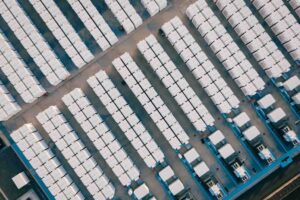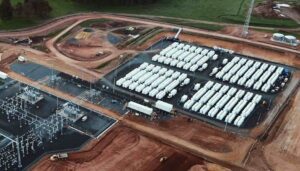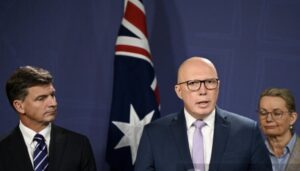The 5th assessment report from the United Nations climate body should leave no-one in doubt: climate change is unequivocal, the role of mankind is clear, the changes experienced already are unprecedented and the world has no time to waste.
The Intergovernmental Panel on Climate Change on Friday released the first of a series of reports – its first wholesale assessment of the climate science since 2007 – that underpin the science of climate change and warn that the world is heading to disaster if it fails to act.
The report says the world has already warmed 0.9C since pre-industrial times and will likely rise by more than 2C and up to 4.8C by 2100 if emissions are not reduced quickly and dramatically. The world risks rising temperatures, rising seas, shrinking glaciers and ice caps and significant changes in local weather patterns.
(A more detailed report on its findings can be found here, including an explanation of the warming “hiatus”. And a couple of compelling graphs can be found here, and some really scary ones here. A summary of the headline findings can be found here).
“The heat is on, now we must act,” said UN secretary general Ban Ki-moon.
The UN body called on world leaders to use the new report to push for concerted global action and a binding treaty. They said world leaders were kidding themselves if they believed that the worst impact could be avoided if action was delayed.
The IPCC painted four scenarios, but only one envisaged the possibility that the world could avoid more than 2C average warming in surface temperatures.
“Some may think we have time, but it is quite the opposite,” said Michel Jarraud, the secretary general of the World Meteorological Organisation “The low band comes only if very quick and urgent action is taken. That is very important for climate negotiations.
The call by the UN body for governments to accelerate action puts the newly elected Coalition government in Australia a difficult position, considering that – despite being a wealthy and high polluting country – it is proposing to remove the institutions and policies, such as the carbon price, that could achieve that increased ambition.
Australia is one of the countries most at risk – economically, as HSBC identified this week – and environmentally, as the IPCC report highlights. This graph below shows that at best, Australia – which has just recorded its hottest 12 months on record – will experience average temperature rises of between 0.3C and 0.7C over the next 20 years.
By 2100, an increase of 1.0C to 1.5C appears inevitable, which will create more temperature extremes. But Julie Arblaster, from the Australian Bureau of Meteorology, and a lead author of the IPCC report, said 4C to 5C was also possible. “A 4C change may not seem like a lot, but consider that the last ice age was just 4C cooler.”
Australian environment minister Greg Hunt said on Saturday, he accepted the science, and the IPCC report. Hunt is a champion debater who knows how to articulate the words, but the Coalition government is yet to articulate a credible policy.
The Direct Action plan is clearly inadequate to achieve anything that approximates the science, and many say it will fail to achieve even the promised 5 per cent reduction target by 2020.
The biggest test for the government will be in the release of the Climate Change Authority report within next month, which will recommend emission reductions targets and caps and caps, and for the first propose a carbon budget for the country. In the light of the IPCC report, this carbon budget could be tighter than anyone has imagined.
The IPCC report warns that the world’s climate budget could be exhausted within 30 years at current rates, and as we explain here, the world may only be able to exploit 10 per cent of its fossil fuel reserves if it is to meet its climate goals. This will come as a crushing disappointment to Australian coal miners, and possibly its gas producers. And it will be a severe reality test for the new government and its fossil fuel industry. Australia’s share of this carbon budget will be hotly debated.
The Coalition, of course, has tried to suppress the CCA report by vowing to dismantle the institution, but it does not have the legislative power to do that, so the report will be released. The Coalition has also closed the Climate Commission, which provided independent scientific assessment, but this has now re-appeared as a community-funded Climate Council.
Ironically, on Friday, the same day as the IPCC released its research, and as Hunt mouthed the words of accepting the science, his department shut down the Climate Commission website, so its taxpayer funded research over the last two years could no longer be accessed by the public.
However sincere Hunt might like to appear in interviews, the reality is that Tony Abbott owes his position to the cabal of climate deniers that elevated him to leadership, and climate denial remains rife within the Coalition. He has appointed a vocal climate denier as his main business advisor.
Even where Coalition politicians, business leaders and media commentators do not reject the existence of man-made climate change outright, they have sought to embrace the likes of Denmark’s Bjorn Lomborg, who argues that action is not urgent and solutions should be put back into the test-tube.
Abbott’s ability to implement even Direct Action is compromised by the rag-tag group that will hold the balance of power in the Senate, including at least two, and possibly three Senators from the Palmer United Party.
Clive Palmer, who will also sit in the lower house, is one of the main developers of the mega coal mines proposed for the Galilee Basin, identified by environmental groups as one of the world’s biggest “carbon bombs.”
The one factor that may galvanise action from the conservative side of politics is the coal seam gas issue and its intrusion on to farming land.
As George Monbiot writes evocatively in this piece, the opposition to CSG may help to bring home the realities of climate science in much the same way as opposition to wind farms encouraged many into the embrace of climate deniers. Given the strong feeling on both issues, there is a real risk that conservatives are split right down the middle.
The other risk for Australia is its isolation. The Coalition government contends that the rest of the world is not acting. But China is not only introducing carbon trading schemes, it is also putting a limit on coal use and banning new coal fired generators in many of its industrial regions. The US has also effectively banned new coal generation.
China’s Qin Dahe, the co-chairman of the IPCC working group, told media on Friday, that business as usual would be unthinkable, even in China. “If every Chinese family has 3 cars (like they do in the US) it will be a disaster for the world. If china can manage its business well, it will be great contribution.”
(This story has been updated to include the closure of the Climate Commission’s website).











